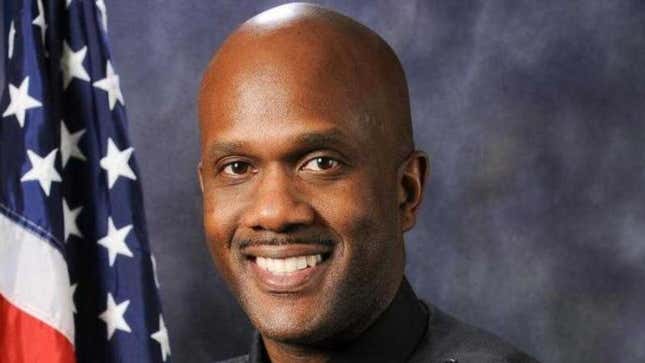
A Kentucky judge dismissed a lawsuit filed by former Lexington Police Officer Jervis Middleton who claimed his termination from the department was a form of retaliation, per the Lexington Herald-Leader. Middleton was accused last year of leaking information about department policies to a group of Black Lives Matter protesters.
Though, according to his lawsuit, the termination wasn’t even the beginning of his complaints against the department.
Previous reports say Middleton was chatting with a friend and BLM activist, Sarah Williams, sharing a notice that a tactical unit was planned to arrive at the protest. However, Lexington Police Chief Lawrence Weathers boiled down what seemed like a simple heads up into a serious violation of department policy--one with grounds for termination. Middleton claimed he was fired improperly by the city in March 2021 and cited racial discrimination as a factor.
US District Court Judge Danny Reeves ruled in favor of the city and the police chief saying Middleton failed to prove how he was discriminated against. Oh, but there’s more to the racism allegations.
Read about Middleton’s previous claims from Lexington Herald Leader:
In the lawsuit, Middleton alleged he faced a hostile work environment, including being taunted by memes and racial slurs. Meanwhile, other white officers who have been accused of stalking intimate partners, using racial slurs and using police computers to find out details about ex-partners are still on the police force.
In his order, Reeves said Middleton had to show the facts of disciplinary cases involving white officers had to be the same as Middleton’s case. Many of the examples Middleton cited were different than the circumstances surrounding Middleton’s disciplinary actions. Moreover, some of those white officers were disciplined under previous police chiefs, not Weathers. To prove disparate treatment under the law, the person making the decisions on discipline must be the same person, the ruling said.
There’s not much said about the do’s and don’ts for police officers regulating a protest besides avoiding mass arrests and fatal force as much as possible. However, Georgetown Law’s Institute for Constitutional Advocacy and Protection suggested communication between officers and protest leaders could help prevent escalation.
Maybe Middleton was just giving a warning (given the violent result of many BLM protests at the hands of the SWAT) instead of conspiring against his colleagues.
Only a few racial discrimination suits against police departments stick or result in an investigation. Most of the time, the people deciding on the case don’t believe racism is strong enough to sustain an argument.

